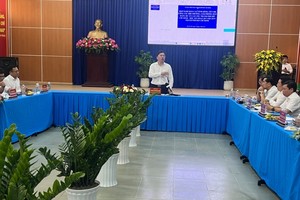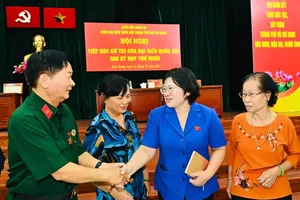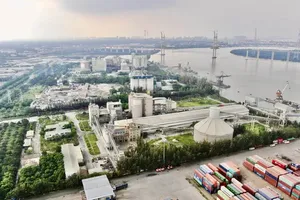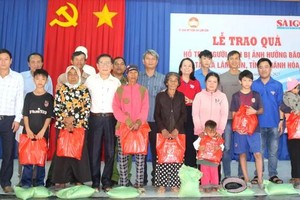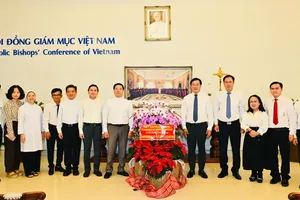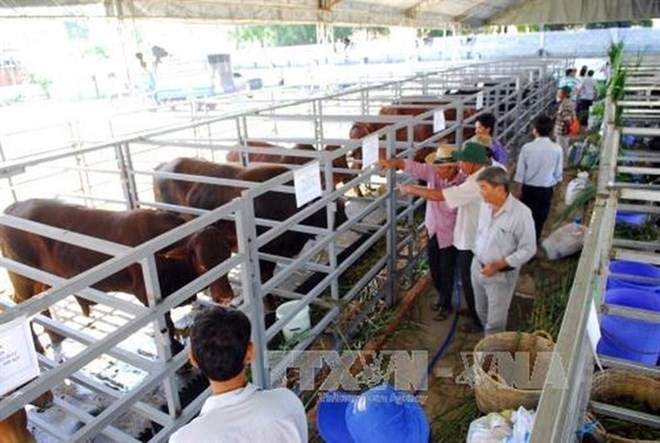
Speaking at a conference on developing modern cooperatives to help restructure agriculture and raise farmers’ incomes, he said currently agriculture did not enjoy that status though it was one of the city’s focuses.
"Vietnam is one of the largest agricultural product exporting countries in the world, but faces problems such as bumper crops and resultant price drops, leading to lower incomes for farmers," he said.
According to Nhan, this is because agriculture in the country is often not compatible with the market economy and international integration.
Besides, farmers frequently face financial shortages though the Government has many preferential policies for them.
Most farmers’ land holdings are small, making agriculture inefficient, especially because 97 percent of farm workers are untrained.
Modern farming cooperatives are needed to achieve a breakthrough in restructuring agriculture and raising the incomes of farmers.
Nguyen Thi Bach Mai, Chairwoman of the HCM City Farmers Association, said the association had encouraged farmers to join co-operatives since 2013.
The city has 75 agricultural cooperatives, and the average income of their members is VND40-50 million (41,713-2,141 ) a year.
According to a survey by the city’s Department of Agriculture and Rural Development, nearly 20 percent of farmers have tied up with enterprises and 15 percent have joined cooperatives. Farmers joining cooperatives earn 10-35 percent more than individuals.
But Mai said most cooperatives faced difficulties related to land, warehouses, finance, working facilities and leadership.
Tran Van Chanh, Director of the Phu Loc Cooperative in Cu Chi district, suggested that city authorities should allow cooperatives to build warehouses on agricultural lands.
Moreover, they should subsidise cooperatives’ efforts to indicate the origins of their produce in their packaging, products.
According to other delegates at the conference, the co-operatives should develop their services in terms of quality and availability.
They should embrace the market, co-operate with each other and with enterprises for creating new strains and breeds and selling to value chains
